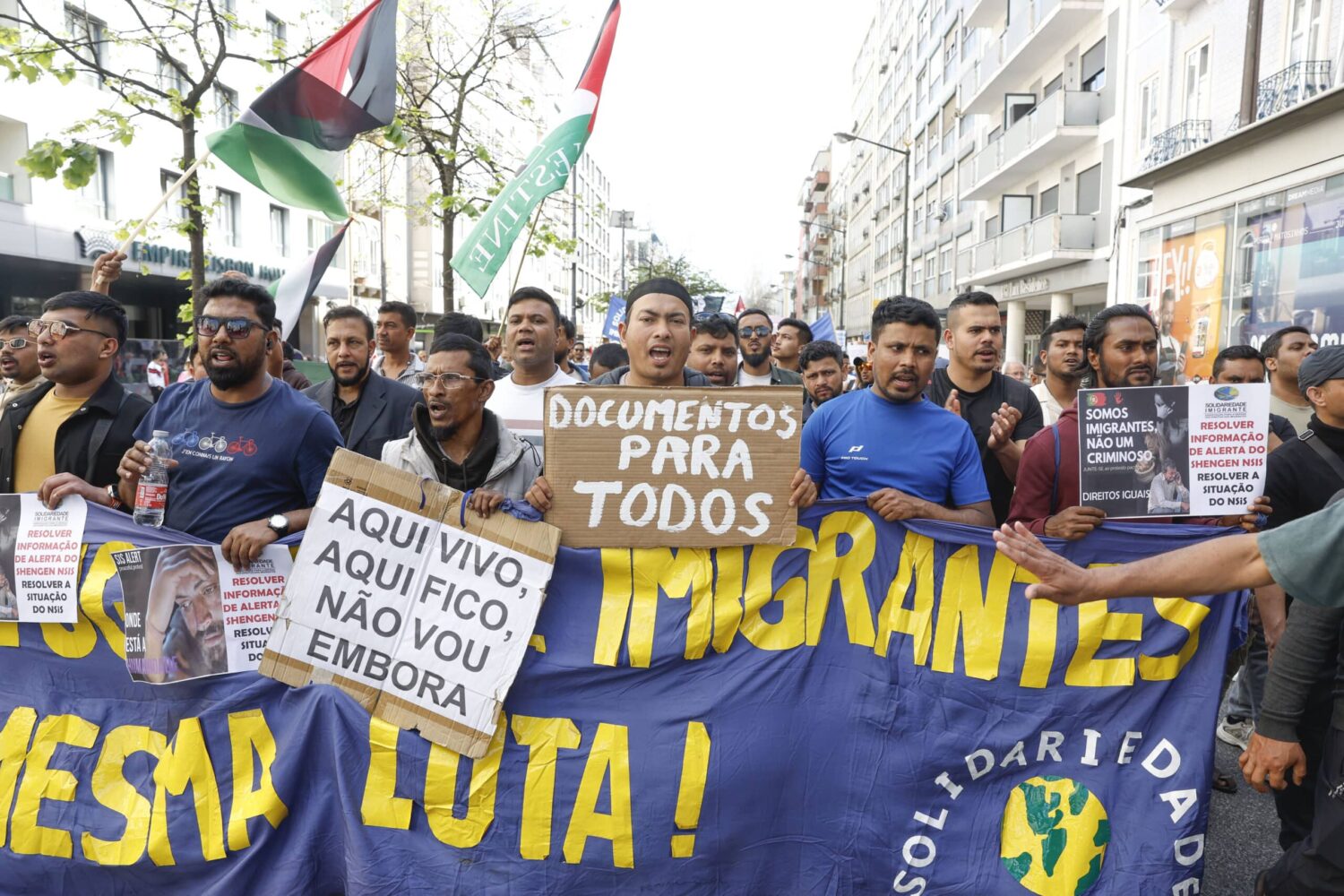First 4,574 immigrants told Portugal won’t accept them
As Portugal’s election campaign got underway at the weekend, news that tens of thousands of immigrants were to start being notified to leave the country by AIMA – the Agency for Integration, Migration and Asylum – created a political outcry.
Left-wingers accused the AD coalition (PSD/CDS-PP) – focused on securing a stronger mandate from the country on May 18 (election day) – of ‘using’ immigrants to score political points (particularly to attract voters who might be tempted by the policies of far-right party CHEGA), and then there were the accusations that the announcement was pitched to draw attention away from lacklustre financial results for the first quarter of the year (INE statistics institute registered a 0.5% contraction of the economy, after strong results of 2024).
CHEGA greeted the announcement suggesting the government was ‘playing’ with the electorate, given that immigrant expulsions ‘happen every year’.
The government of Luís Montenegro hit back at the chorus of dissenters insisting the decision comes as a continuation of its policy to ‘stick by rules’ when it comes to immigration, after years during the Socialist governments of António Costa when there was a comparative ‘free-for-all’.
Speaking at a rally on Sunday, the prime minister reiterated that Portugal’s real blackout didn’t come when power failed on April 28; it came when Socialist predecessors ushered in the ‘manifestation of interest’ mechanism that allowed economic migrants to arrive in this country on tourist visas and immediately start the process for obtaining Portuguese residency. With Portuguese residency under their belts, they would then be free to live and work anywhere within Europe, which has more than often been the ‘end game’ in this process.
It was the manifestation of interest mechanism (abolished by AD shortly after it won last year’s legislative election) that brought the deluge of residency applications that former borders agency SEF couldn’t cope with, and which AIMA inherited last year on SEF’s demise.
Since that time, the mission structure at AIMA, set up by AD, has been laboriously going through the backlog, identifying people who do not tick all the requisite boxes: this could mean they have criminal convictions in other countries/their countries of origin; that they have been refused asylum in other parts of Europe before; even, that they are not who they say they are.
Thus, admittedly at the sensitive point of the country’s third legislative election in three years, authorities have come up with a shortlist now of people who will not be considered for residency.
To start with, 4,574 applicants will be receiving notifications this week to quit the country within the next 20 days. They will be informed that if they do not leave of their own volition, “they will be subject to an expulsion process”.
As the weeks go by, at least 13,500 further applicants will be receiving similar notifications.
Minister for the presidency António Leitão Amaro admits that, even after this, there could be more notifications in the pipeline: there are still another 110,000 applications for the mission structure to scrutinise, and it goes without saying that some of those will also be found ‘ineligible’.
And according to Jornal de Notícias, which broke all this news on Saturday, a total of 170,000 immigrants could end up being asked to leave because they haven’t paid the relevant costs of legalisation processes.
The majority (75% of applicants) receiving AIMA’s notifications to quit are from the Indian subcontinent, according to reports (this gels with past accounts of corruption within immigration networks). Only a tiny percentage (2.5%) are from Brazil and Portuguese-speaking countries (PALOP – Angola, Cape Verde, Guinea-Bissau, Mozambique, São Tomé and Príncipe and Equatorial Guinea) and a slightly higher percentage (7.5%) are from non-Portuguese speaking countries of Africa.
Immigrant associations tell members “Resist forever!”
As notifications start going out this week, the reality is that associations in this country supporting immigrants are not in any way encouraging compliance.
In an early message over the weekend, Solidariedade Imigrante – one of the largest such associations in Portugal – wrote over social media: “Expulsion is not the solution! There are solutions and the government has them! We will always fight! Strength, friends! Resist forever!”
Since then, SOS Racismo has entered the fray, calling on society to uphold immigrants’ human rights.
The reality, however, is that it will be extremely hard for AIMA to physically expel thousands of people who do not want to leave.
Some of these immigrants will have been living here for two to three years, venture reports. A number may even have had a child (which will have been registered as a Portuguese citizen). Many of them will have been among the crowds that demonstrated on May Day, holding cardboard placards saying: “I live here, I am staying, I am not leaving” and “Documents for Everyone!”
At the time, it seemed curious that these demos in Lisbon’s Martim Moniz, and in São Teotónio, Odemira, received so little by way of press exposure – and almost nothing in terms of political comment. Three days later, however, the reason became apparent: the announcement of mass expulsions must have been well anticipated.
PS leader Pedro Nuno Santos has even used the tack that AD is embarking on a “Trumpisation” process (following the policies of Donald Trump) – and the government’s ‘Immigrant fast-track’ programme, involving consulates abroad and agreement with employers, is not showing signs yet of much in the way of life – bearing in mind that employers are expected to provide contracts and accommodation.
In other words, it is debatable whether this ‘bombshell’ delivered at the start of the election campaign will have much in the way of effect. Everything depends on whether AD returns with a working majority, and whether it can push through the logistics that it called for last year (involving PSP police handling expulsion orders, not AIMA), which all the other parties, including right-wing CHEGA, refused to support.




















